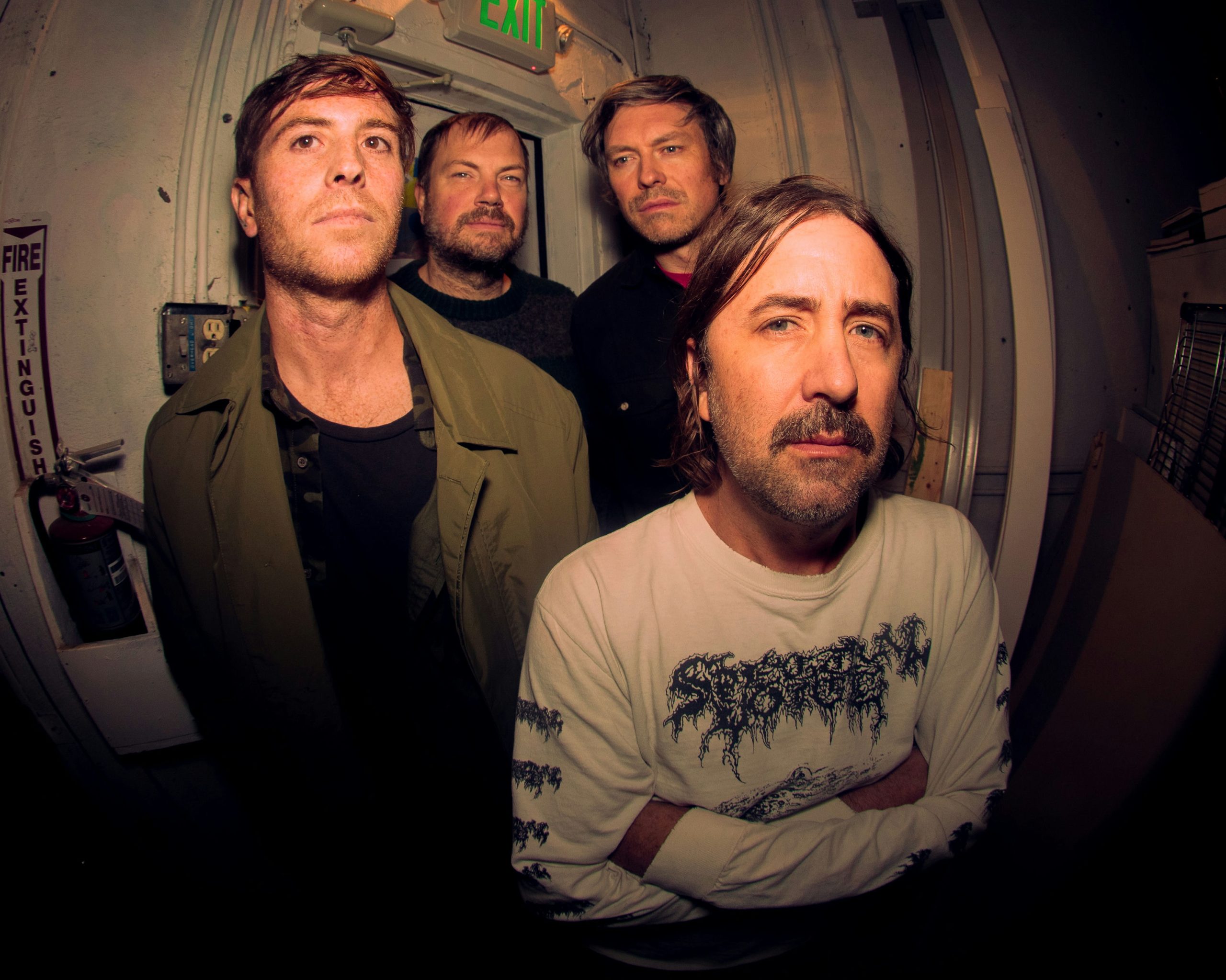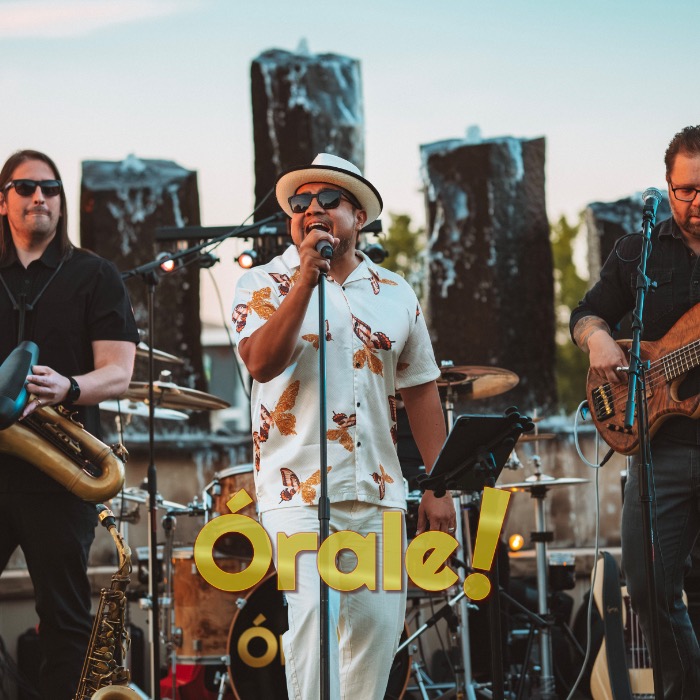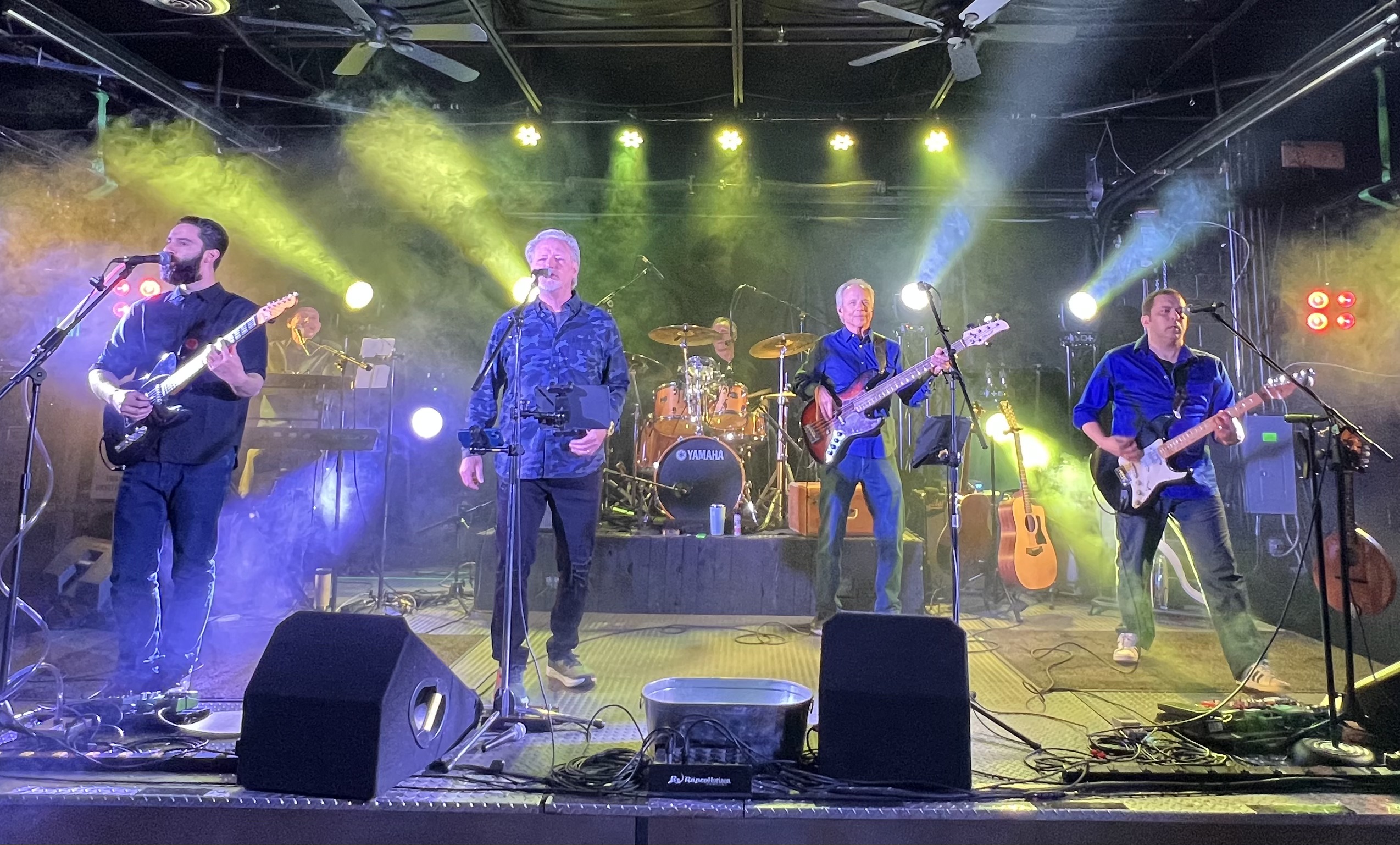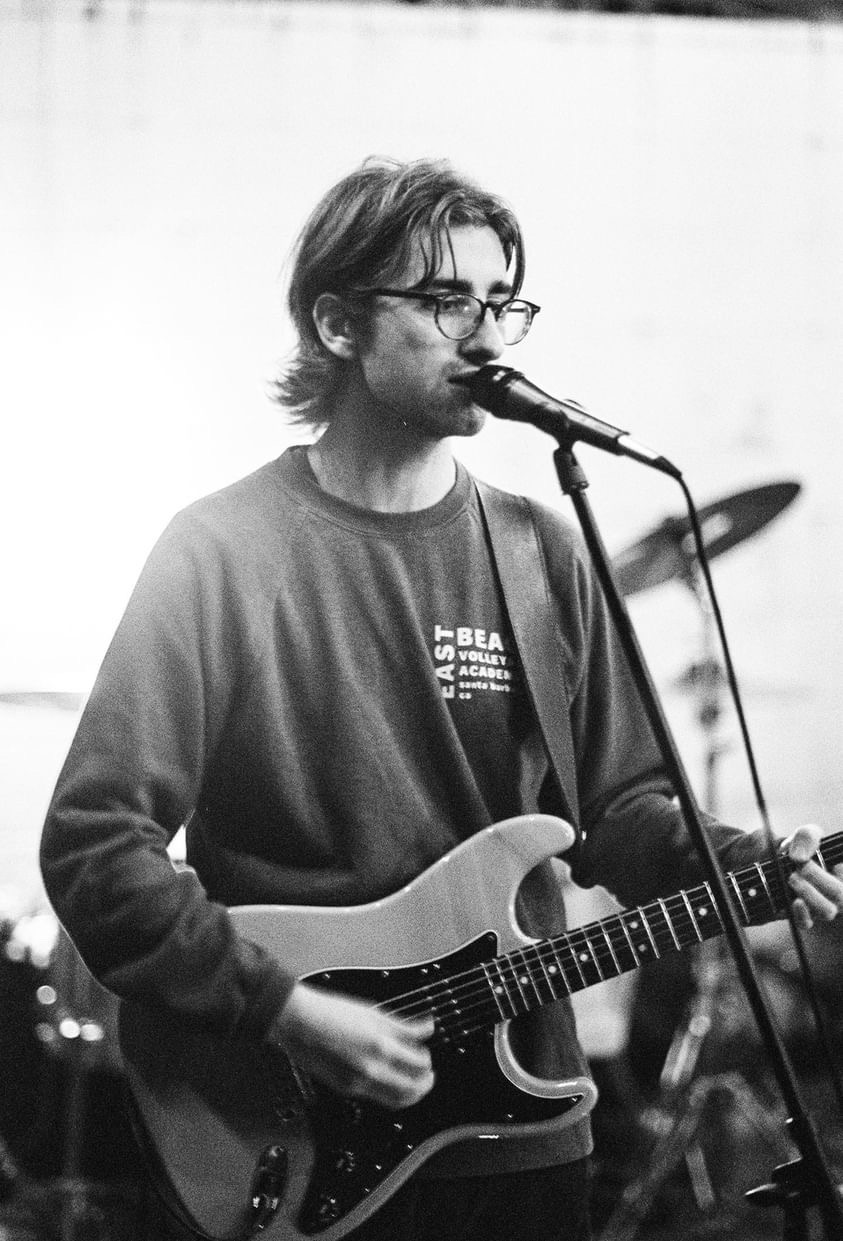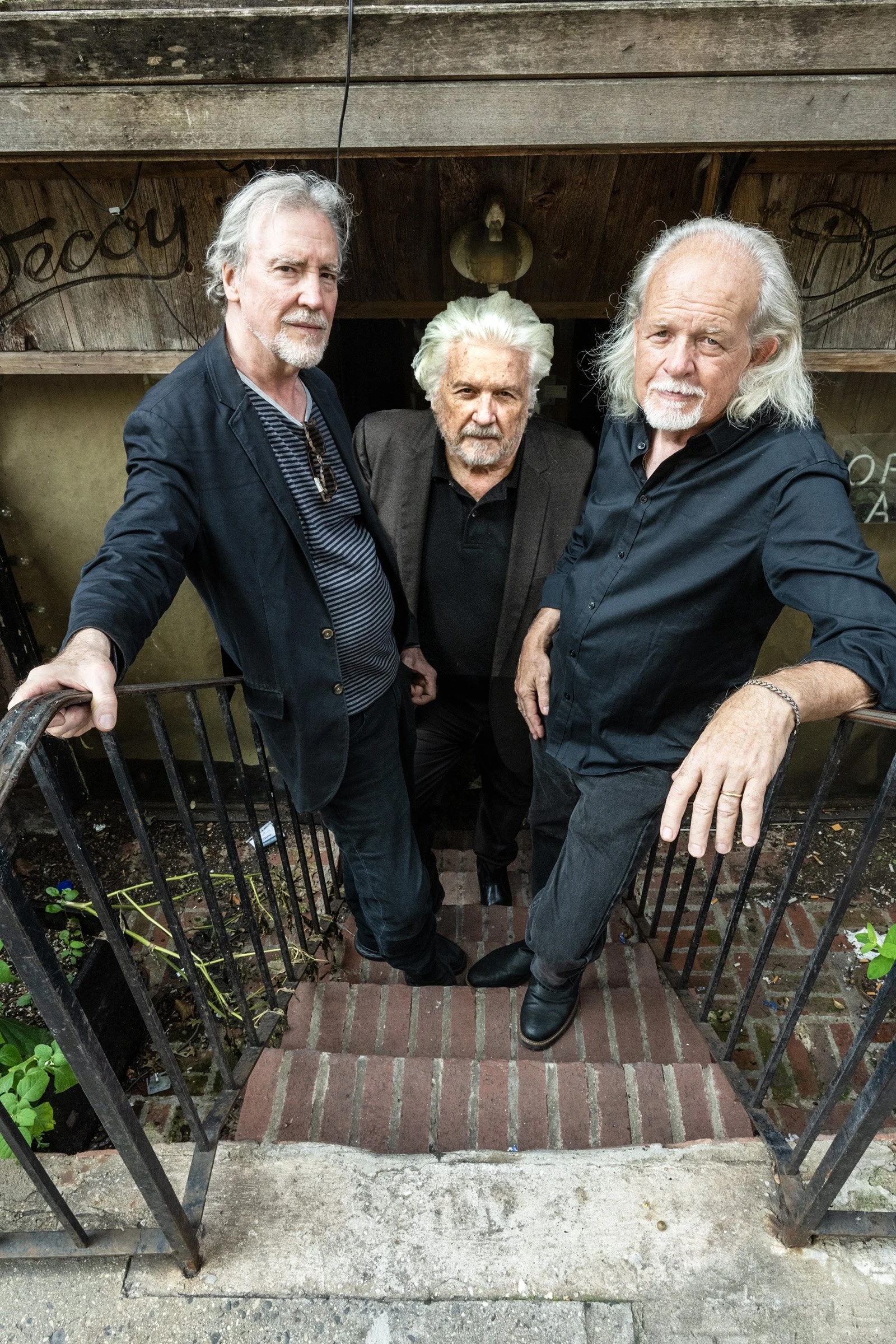
The term “outsider music” often conjures a sense of tension, a rejection of norms, a bristling against
traditions or comforts in favor of something deeper. Denver-based band American Culture certainly fit that
bill, but on their new album Hey Brother, It’s Been A While they take that spirit and upend it even further
with a surprising ingredient: warmth. It’s a record of invitingly idiosyncratic punk psychedelia, imbued with
a real humanity and compassion that’s been hard earned through life and death stakes. A document of
survival, Hey Brother, It’s Been A While is told from the dual perspectives of a person who got lost and a
person who tried to find them–and it’s one of the most uniquely powerful albums of 2024.
American Culture began about a decade ago as the home-recording project of guitarist/vocalist Chris
Adolf, and evolved over the years into a full band rounded out by bassist Lucas Johannes, drummer Scott
Beck, and Adolf’s co-vocalist/co-guitarist Michael Stein. The group’s penchant for impressive live shows
and dense, crate-digging songwriting has earned them a loyal cult following, especially in Colorado,
where they caught the attention of their new label, Convulse Records. “American Culture is a Denver
staple and somehow our best kept secret–until now,” says Convulse founder Adam Croft. “If you ask
anyone in Denver who is involved in subculture–metal, punk, hardcore, whatever–about American
Culture, they’ll go out of their way to talk about how great they are. They’re a huge part of the fabric of our
scene and I’m honored to put out what I think is their best record to date.”
While American Culture seems poised to catch new ears, the journey to Hey Brother, It’s Been A While
has not been a straight line. In fact, it was about as twisting and harrowing as anything can be. “Michael
was homeless last year–he was a missing person for three months. We thought he was dead,” explains
Adolf. “So a lot of his songs are about that experience, and then my songs are about the other
end–thinking my friend is gone. It’s almost as if we were writing back and forth.”
Stein’s story is truly astounding, made all the more so because he survived to tell it. “I’d messed with
heroin on and off since I was 21, but it amped up around Covid,” he says. “My jobs have always been
working in local music, so when that shut down it pretty much took away everything I did that wasn’t
heroin. My life warped to revolve around drugs, and by the time shows even came back, I was a mess.”
Stein’s struggle with addiction led him on an exodus back home to California in a failed attempt to get
clean, then to what he describes as “a drug addict mission,” where he eventually ended up stranded in
Las Vegas, robbed, held hostage, and living in the tunnels beneath the city. “I sort of just gave up and
decided to be a junkie,” Stein recalls. “I was accepting that was just going to be my life.” Meanwhile Adolf
and Stein’s parents were working hard to try and find him. “It was like a Cohen brothers movie, trying to
track down these drug dealers just to get leads on where to find him,” Adolf says. “Eventually the missing
persons report helped his parents figure out where he was. When his dad called me and said they’d
found him, my first question was ‘dead or alive?’”
Stein returned to California once again, but this time was able to get clean. “I’d hit rock bottom in a really
heavy way but I’ve finally been able to stop struggling with this thing. Chris came out to visit me and we
started playing some music just for fun. I wasn’t even in the band again yet–I had nerve damage in one of
my hands from sepsis–but it ended up being the start of the record.” Slowly, an album began to form, the
music an exciting new step for American Culture and the lyrics chronicling the events and emotions that
led the songwriters back to making music together again. “We love playing loud guitars and drums and
all, it’s a visceral thing to do, but at the end of the day it’s just a very effective package for poetry,” Adolf
explains of their approach. “Music is just a Trojan horse for poetry.”
When it finally came time to record Hey Brother, It’s Been A While, the band recruited their longtime
friend, James Barone. Known as the drummer of bands like Beach House and Tennis, Barone is also a
producer/engineer who has worked with artists like Nathaniel Rateliff and Hatchie, and he’d recently set
up a home studio in a shed in his backyard. “I’ve made a lot of albums on my own and it’s like I can’t tell if
they’re good because I don’t believe my own ears,” says Adolf. “But working with James, I knew we could
really trust his input. He really understood what we were trying to do–he wasn’t scared when we’d
mention Len and The Grateful Dead in the same breath.”
Those kinds of unexpected combinations come to mind often while listening to Hey Brother, It’s Been A
While. The music is hard to put your finger on, not because its influences and sonic touchstones are
obscured, but simply because they’re so abundant. The album threads the needle between so many
different sounds and eras of rock music that it allows the listener to conjure up an endless array of fantasy
scenarios: What if The Stone Roses were fronted by Jim Carroll? What if Spiritualized and The
Replacements wrote music together? What if The Meat Puppets were a C86 band? “I set out to make
more straightforward pop music than we’d ever made before,” says Adolf. “But the execution isn’t
straightforward–you gotta give it something special. I think part of that is just that everything we do goes
through the filter of punk.”
Hey Brother, It’s Been A While opens with “Let It Go,” a sprawling cut of Britpop-by-way-of-basement-
punk that introduces many of the sonic and lyrical elements powering the album: a groove-laden beat,
agile bass lines, and hazy, intertwining guitars that bolster the raw lyricism. The song also introduces
another recurring voice on the record, that of slowcore experimentalist Midwife, aka Madeline Johnston.
Her warm, dreamy harmonies offer a melodic counterpoint on “Let It Go" and its sibling song “Break It
Open.” Elsewhere, tracks like “Survive” or “Body Double” find Stein unpacking the mental and physical toll
of the preceding months–the former a Feelies-esque romp, and the latter a blast of shoegaze-flecked
alternative. Meanwhile Adolf-led tracks like the jangle pop candy of “Human Kindness,” the crunchy noise
pop of “Circle The Drain,” and the Westerberg-ian ballad “Lost Puppy” explore the heartbreak of watching
someone you care about become consumed by desperate circumstances. “When someone almost dies,
you learn to just be super honest and cut right to the core,” Adolf says. “I think we brought that into the
songwriting too.”
The result is an album that’s as undeniable in its sound as it is unflinching in its message. Hey Brother,
It’s Been A While feels like a culmination, like a band bringing together years of experience to create both
their most fully-realized work and a fresh start, where the dark clouds break to reveal new light. “Michael’s
lucky to be alive, we’re lucky to be a band,” Adolf says. “So we feel like let’s just really do this for real.
Let’s just be really honest and make this the best it can be.”
PAST SHOWS
American Culture
Braided Waves
SIMILAR ARTISTS
